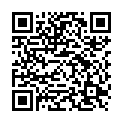|
|
|
| Module code: PIB-WLAN |
|
|
2V (2 hours per week) |
|
3 |
| Semester: 4 |
| Mandatory course: no |
Language of instruction:
German |
Assessment:
Written exam (90 min.)
[updated 19.02.2018]
|
E2428 (P200-0033) Electrical Engineering and Information Technology, Bachelor, ASPO 01.10.2018
, optional course, technical
KI632 (P200-0033) Computer Science and Communication Systems, Bachelor, ASPO 01.10.2014
, semester 6, optional course, technical
KIB-WLAN (P200-0033) Computer Science and Communication Systems, Bachelor, ASPO 01.10.2021
, semester 6, optional course, technical
KIB-WLAN (P200-0033) Computer Science and Communication Systems, Bachelor, ASPO 01.10.2022
, semester 6, optional course, technical
PIBWI20 (P200-0033, P610-0199) Applied Informatics, Bachelor, ASPO 01.10.2011
, semester 6, optional course, informatics specific
PIB-WLAN (P200-0033) Applied Informatics, Bachelor, ASPO 01.10.2022
, semester 4, optional course, informatics specific
PIB-WLAN (P200-0033) Applied Informatics, Bachelor, SO 01.10.2026
, semester 4, optional course, informatics specific
|
30 class hours (= 22.5 clock hours) over a 15-week period.
The total student study time is 90 hours (equivalent to 3 ECTS credits).
There are therefore 67.5 hours available for class preparation and follow-up work and exam preparation.
|
Recommended prerequisites (modules):
None.
|
Recommended as prerequisite for:
|
Module coordinator:
Dipl.-Math. Wolfgang Braun |
Lecturer: Dipl.-Math. Wolfgang Braun
[updated 01.04.2003]
|
Learning outcomes:
After successfully completing this module, students will have a basic understanding of the terms and relationships required for the use of WLAN in communications technology.
- They will be able to explain the basic concepts of WLAN technologies according to the standard 802.11
- They will be able to use the formulas from telecommunications engineering discussed in the lecture to solve WLAN problems.
- Students will know how to set up secure WLAN environments
- They will be able to explain basic procedures for planning, installing, configuring
(functionality, security) and monitoring WLAN systems
- And they will be able to design simple WLAN applications
[updated 30.07.2021]
|
Module content:
- Basic functionality according to the IEEE 802.11 standard
- Typical areas of application and reasons for use
- Basic knowledge about electromagnetic waves (modulation, attenuation,
antenna gain, free space path loss,...)
- Practical exercises on the propagation of electromagnetic waves
- Problems with use and negative aspects
- The technologies of the WLAN standard 802.11
- Presentation of a current system with practical experiments
- Security in WLANs
- Planning and monitoring WLANs with a presentation of the software used for this purpose
- Examples of use
- Evaluation criteria for WLAN systems
[updated 19.02.2018]
|
Teaching methods/Media:
Lecture using PowerPoint slides and worksheets. Practical experiments with standard WLAN hardware and home-made antennas.
[updated 19.02.2018]
|
Recommended or required reading:
PowerPoint slides will be available to the students.
Rech, J. : Wireless LANs Heise-Verlag, 4. Auflage, Hannover 2012, ISBN 978-3-936931-75-4
Kauffels, F.-J. : Moderne Wireless-Technologien, Technologiereport der Firma ComConsult, 2012
[updated 19.02.2018]
|
Module offered in:
WS 2023/24,
SS 2023,
WS 2022/23,
SS 2022,
WS 2021/22,
...
|


